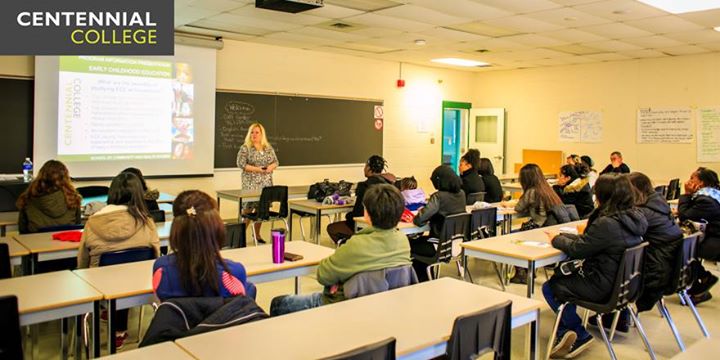Why do I write CV for Graduate School? What is the difference between a CV and a Resume? These and many more are the things Nigerian Students need to know for their international study.
Sit back, take a sip of cool water to learn from these expert tips.
It is important for graduate school applicants to understand that, while both CVs and resumes similarly contain a history of your major activities, a resume is mainly focused on professional accomplishments and work history.
On the other hand, to write CV for graduate school means to showcase your academic achievements and it is a synopsis of your educational and academic background along with related information.
In addition to the college transcripts, GRE scores, personal statement of intent, most often than not, graduate schools will require applicants to include a CV prior to their graduate school admission.
The guide tips for you to write CV for Graduate school is a bit different from those for a standard job application.
Let’s take a closer look!
Why Should I Write CV For Graduate School Admission?
In the real scenario, CVs are used to obtain all kinds of jobs, but in this case, that job is a “graduate student”!
Even when a graduate program doesn’t vividly require you to submit a CV, but if the school does ALLOW you to upload this document, based on many college and university counselors and admissions experts, it will be a good decision to include your CV for Graduate school.
Moreover, if you have not write CV for graduate school, now is surely the perfect time in your career to do so. Here are some reasons now is the ideal time Nigerian graduates should create an academic CV:
- Scholarship Applications: Many college and university scholarships often request candidates to include a CV as part of filling out an application form.
- Grant Proposals: when you are applying for grants to fund your graduate projects, you will be required to submit a CV with it, so that members of the committee awarding the grant can build trust in the applicant.
- University Positions: If you intend to teach undergraduate classes, assist university researchers, or do part-time administration work, you will have to submit a CV.
- Job Search After Graduation: Peradventure you didn’t need a CV throughout your entire study at the university, you will certainly require to create a CV or resume for any job after you graduate. See 6 Things Recruiters Target In A Résumé At First Glance.
Because CVs and resumes are meant to be constantly updated, it is imperative for Nigerian graduates to create a basic CV now so as to provide a detailed snapshot of exactly what you have so far accomplished.
Definitely, it’s a lot easier to pen down your accomplishments right after you have done it than to try and remember experiences long after two or three years past. Find your opportunities on Work Choices on a Student Visa during and after School.
Like personal statements, to write CV for graduate school is a common part of the application requirements even though not all programs require them.
A CV for graduate school will meet the same basic purpose as a regular CV to secure you the job you want. But, in this case, as regards the position of “grad student”, the CV is essentially a sales pitch to graduate schools, and you’re selling yourself!
Major Grad School CV Sections And Important Information:
The order of information and level of detail you will include to write CV for graduate school is somewhat flexible and is ultimately up to you. But the best CVs will be those that showcase the applicant’s interests and qualifications.
It will be to your advantage to follow these section-by-section details so you can craft an academic CV that will impress any admissions committee.
1. Personal Details:
It is crucial to include your full name, home address, contact number, as well as an email address. Add this information at the top of the first page, either aligned left or at the center of the page.
- Ensure to use a larger font size and “bold” the text to make this info stand out.
2. Education:
Here, you will list the institutions you have attended. Begin with your most recent college or university and list backward to the high school attended. Include the institution name, location, type of degree obtained, your major, and the dates attended.
- If you completed a thesis or dissertation, include the title and your advisor (if applicable).
- Include any Latinate honors or distinctions (for example, “cum laude,” “magna cum laude,” “summa cum laude”).
- You don’t have to include your exact GPA or test scores since the information will be visible on your transcript.
3. Teaching Experience:
It isn’t new that most first-time applicants to grad school do not have any teaching experience, yet any experience, tutoring or acting as a teacher’s assistant as an undergraduate or graduate student could be added in this category.
- Mention the relevant skills and duties performed in bulleted statements.
4. Research Experience:
 Just like the teaching experience above, research experience may be rare for first-time graduate school applicants. But if you have any assistantships, practica, or other research experiences, make sure you list them here.
Just like the teaching experience above, research experience may be rare for first-time graduate school applicants. But if you have any assistantships, practica, or other research experiences, make sure you list them here.
- Add the institution name, the nature and duties of the position, your supervisor’s name, and the dates of your research.
5. Honors and Awards:
List each award, granting institution, and the date it was awarded. These can range from university scholarships to teaching assistantships as well as fellowships, to inclusion on the Dean’s list for scoring a stellar GPA.
- Place these in their order of importance, though not necessarily in chronological order
- Where you received only one award (for example, “graduated with honors” or “Dean’s list”), include this in the Education section.
6. Grants Awarded:
To write CV for graduate school, your CV must include any work that attracted awarded funds. List the title of the submitting, the awarding institution name, the dollar amount of the grant, and the date awarded.
7. Technical Competencies:
Since academic research is mainly based on
building databases and analyzing data, related experience with statistics and computer modeling as well as analyzing programs are examples of what you should highlight on your CV.
- Mention any courses you studied, computer programs in which you are competent, and techniques for data analysis you acquired and practiced.
8. Academic and Professional Experience:
Include work positions that reflect on your skills and qualifications. This might be internships or jobs with administration duties. It can also include any kind of job you did which points to your commitment and work ethic as well.
If you have multiple elements to add in one category, such as, “Research,” “Teaching,” and “Managerial”, you should group the experience
es into relevant categories.
Your employment history should include as far back as four to five years, depending on your age and extent of your work experience.
- The name of the employer should be added, including the location, the title of your position, and employment dates.
- Below this line, you should describe your duties and responsibilities in a summary of one or two lines, since the professional experience is not the main focus of your CV.
9. Publications:
It is likely you started publishing work during or after graduate school. If you have published any work, separate the various publications into sections for journal articles, reports, and other documents.
On the instance that you do not have any formal publication credited to your name, other less academic publications (for example; newspapers, magazines, blogs, and newsletters) can be included if they highlight your skills as a writer and thinker.
- For each work, use bibliographic citations in the format appropriate for your field of study.
- If you have not officially authored or co-authored any text publications, include studies you assisted in or any online articles you have written or contributed to that are related to your discipline or that are of an academic level.
10, Conference Presentations:
Like Publications above, you may not have started attending conferences and giving presentations until you are in the core part of your graduate school career.
Where you do have this experience, add any given presentations, whether you were the presenter or a visual work contributor such as posters and slides.
- Include the presentation title, name of the conference or event, location, and date.
- Make a summarised description of the content of your presentation.
- Use the appropriate formatting for your field of study to cite the conference.
11. Academic and Professional Membership:
Your affiliation with professional or academic groups will make Graduate School admissions committees sure you are willing to branch outside of the university environment to connect with other like-minded individuals in the pursuit of your interests.
- Include the name of the academic/professional group or society of which you are a member, the dates of memberships, and mention any leadership positions or other roles you have held.
12. Research and Teaching Interests:
It is an interesting idea to discuss your anticipated research and instruction direction after graduate school admission along with any research or teaching work you have already completed or are currently working on,
Be very specific with the topic including the design of your potential research, and name any particular courses or areas of study you would love to teach as a TA in individual classes.
The more information you can present to admissions committees to prove your readiness for graduate-level work will raise your chances as a candidate.
13. Community Service, Volunteer Work, and Extra‐Curricular Activities:
Include any community and volunteer activities that have helped develop your leadership, organization, or other skills which are beneficial to your success in graduate school.
- Spell these activities and mention your role (such as; “SIFE North-North Youth Empowerment Programme Volunteer”), the date of participation, and details explaining how you participated.
- Additional Relevant Skills and Languages: At this point, you should list other experiences and certifications you have obtained which might be of benefit in graduate school. Also, list any languages you have fluency or proficiency for.
- Referee/References: Usually, this is the final section of an academic CV. Include 3 or 4 professional and academic references who can guarantee your ability and qualifications and show evidence of these characteristics.
- Write the Reference name, their professional title, affiliation, and contact information (such as phone and email). List your references in their order of relevance and impact.
CV Formatting Tips for Your College/Grad School
Nigerian Students must be reminded that no matter how compelling the content of your CV is created if it lacks a well-organized structure and difficult for admissions committee members to read, they would probably not waste their time reading through all of your notable achievements and skills.
For What Must I Include On My CV For Graduate School? Keep these formatting and organization tips in mind when composing and revising your CV:
- Keep your formatting choices; such as indentation, spacing, font and text size, and grammar consistent from the beginning to the end of the document.
- Where applicable, use bolding, italics, capitalized words and underlining, to highlight key information.
- List your experiences in a backward or reverse chronological order within the sections.
- The most important information should be at the top left of each entry and place relevant dates to the right.
- Insert page numbers on each page with your last name as a header or footer.
How May I Revise and Edit My CV/Resume?
By the time you finish with composing your academic CV or resume, it would still be necessary you make sure your language is compelling and accurate. To write CV for graduate school, it must be well-organized, clear, tidy, and free of errors. See What To Avoid When Writing A Good Resume.
It would practically take at least three or four revisions to finally write CV for Graduate School at the best standard, before it can be sent out to university department faculty.
Be sure to have a reliable or professional editor to proofread your work to avoid glaring errors or find an area of improvement.
If you need help, you can send your CV and other application documents to Wordvice Editing Services for the highest quality of professional editing. The editors will ensure that your hard work is reflected in your CV and do anything necessary to help you get into the college or graduate school of your choice.






















